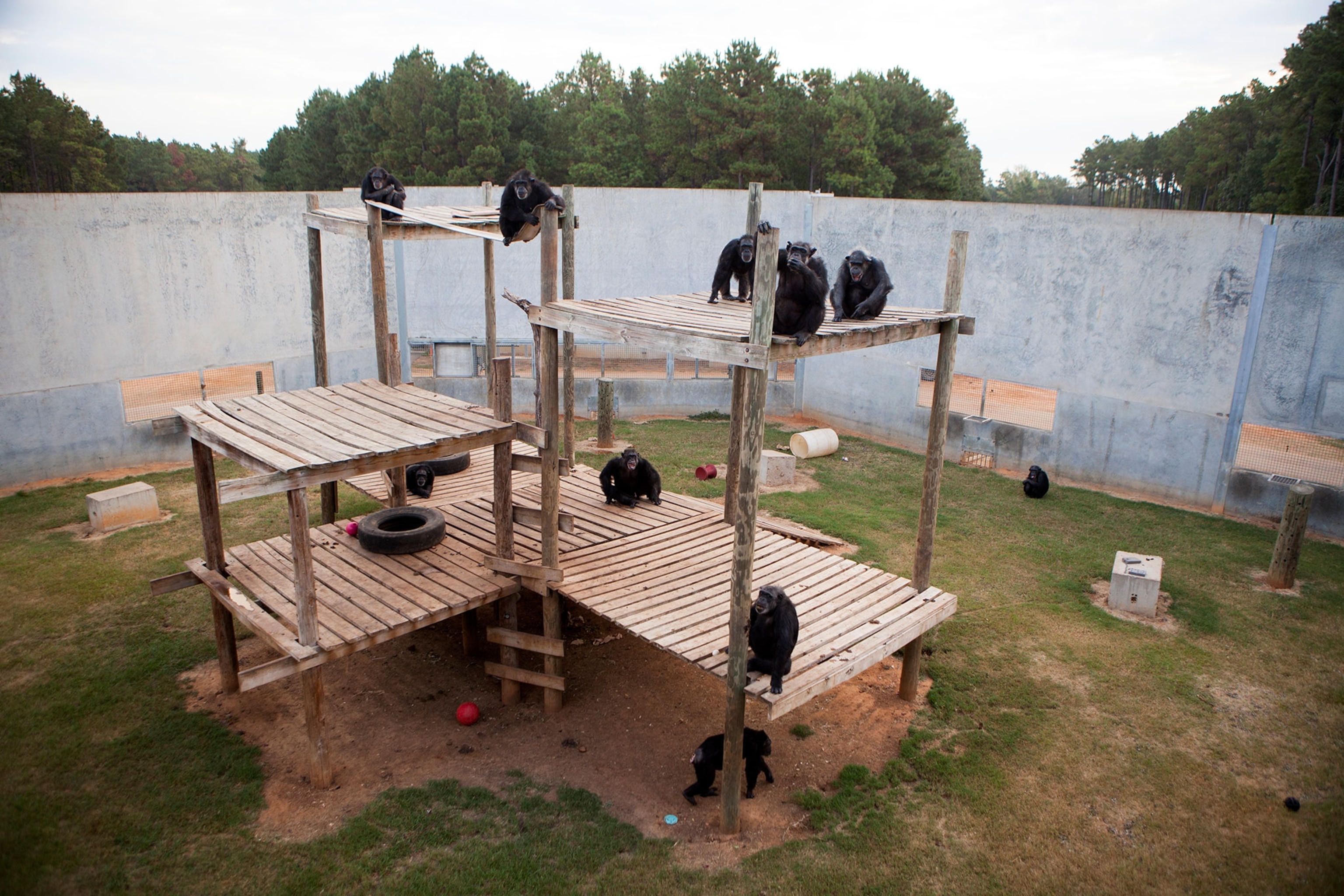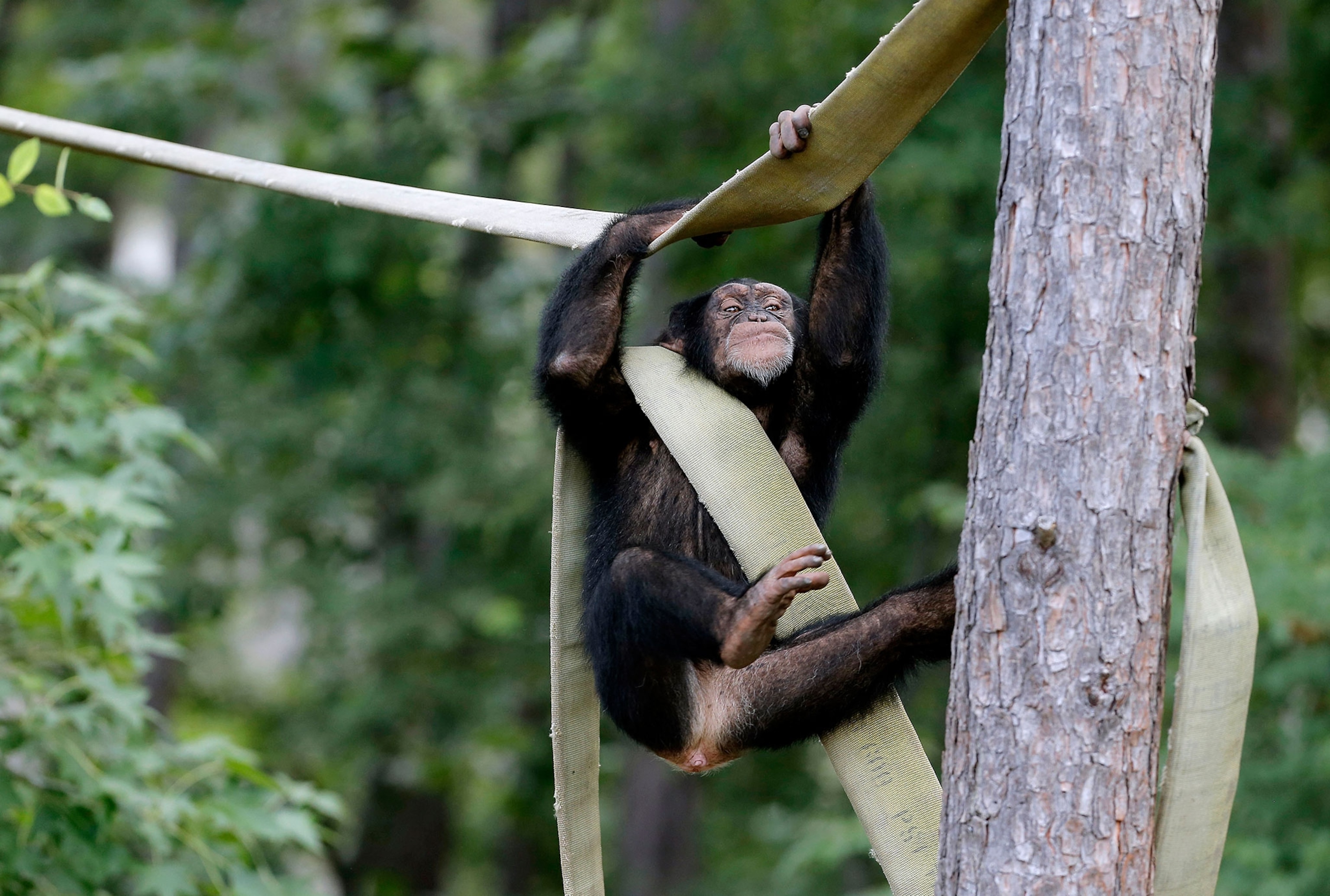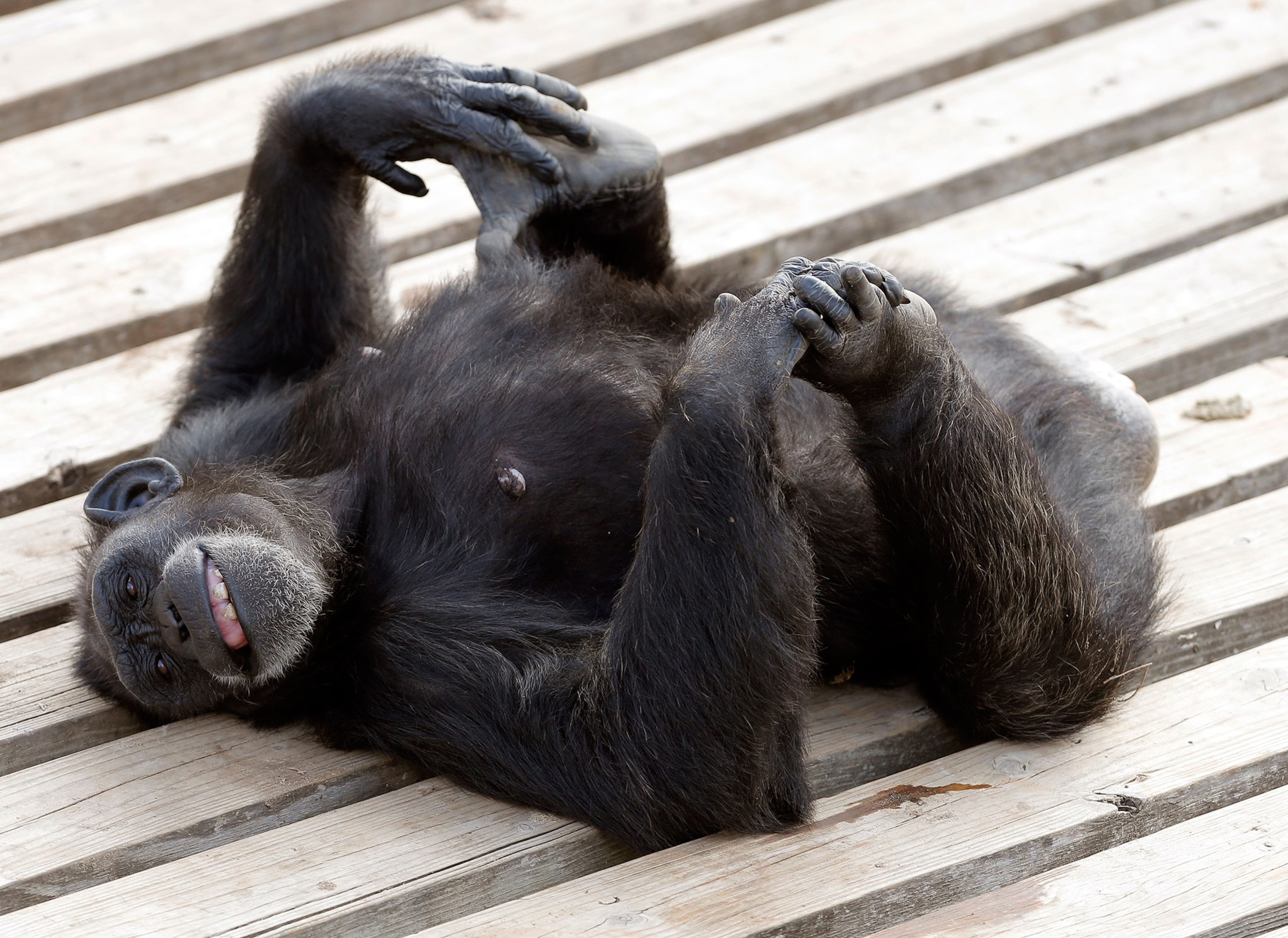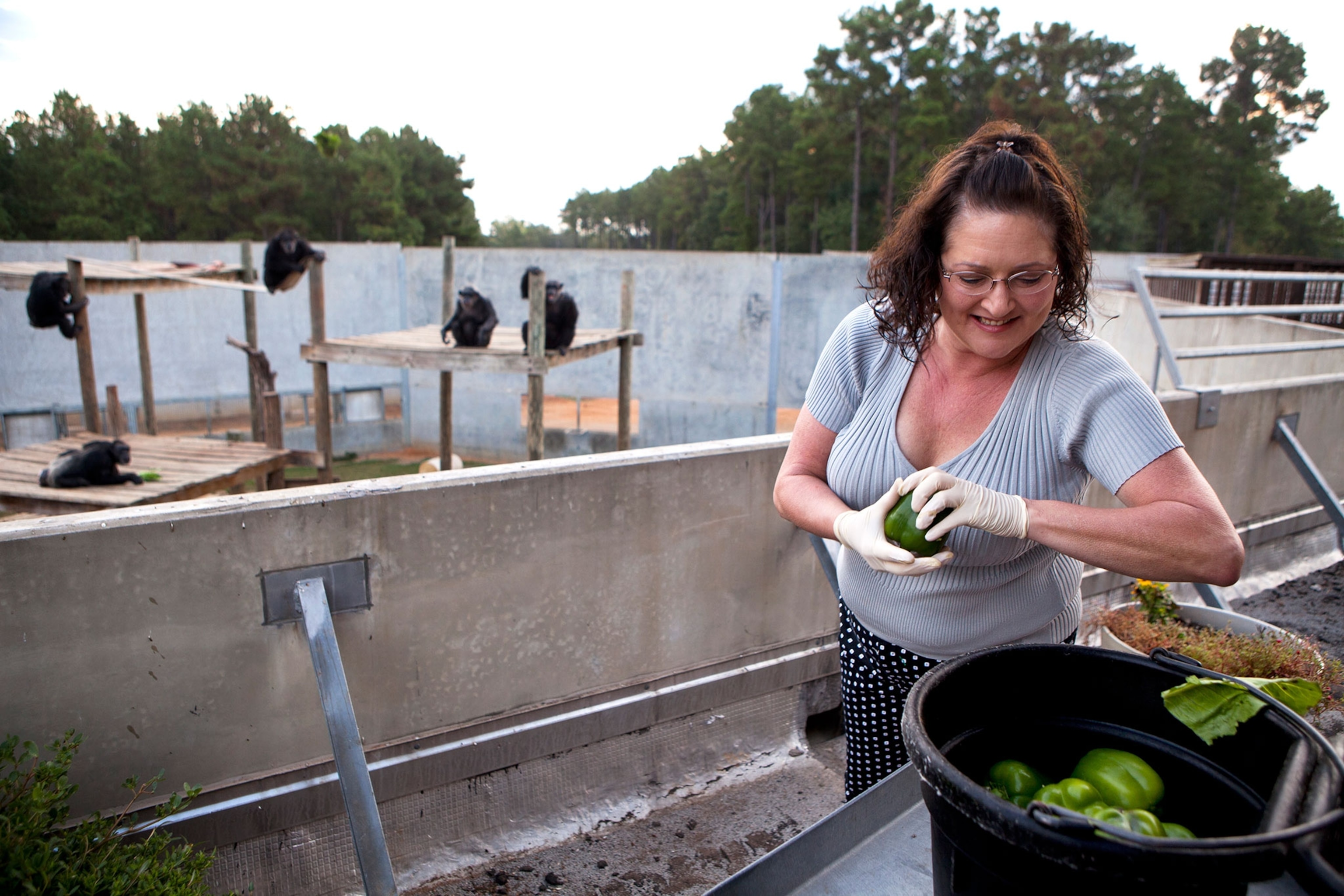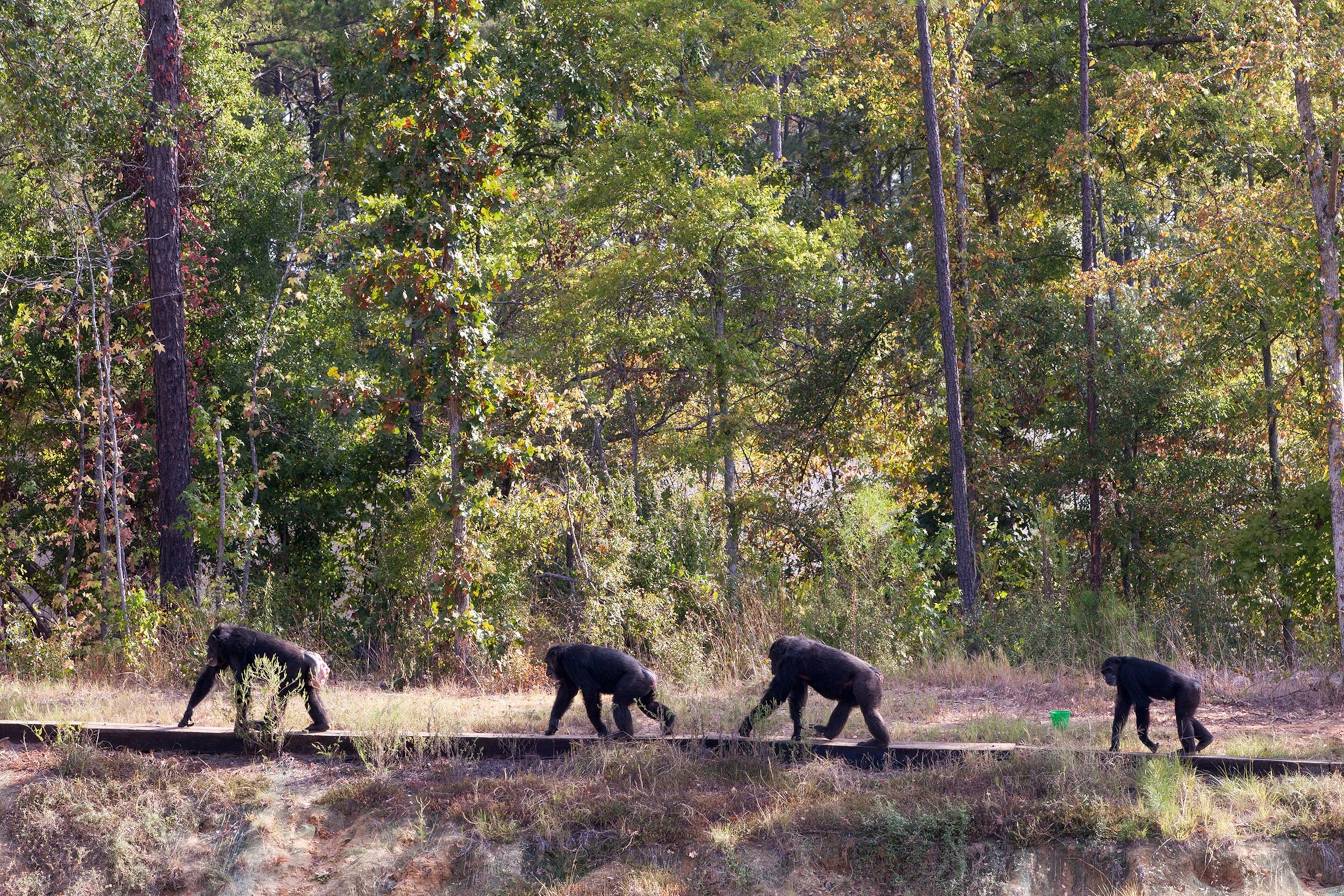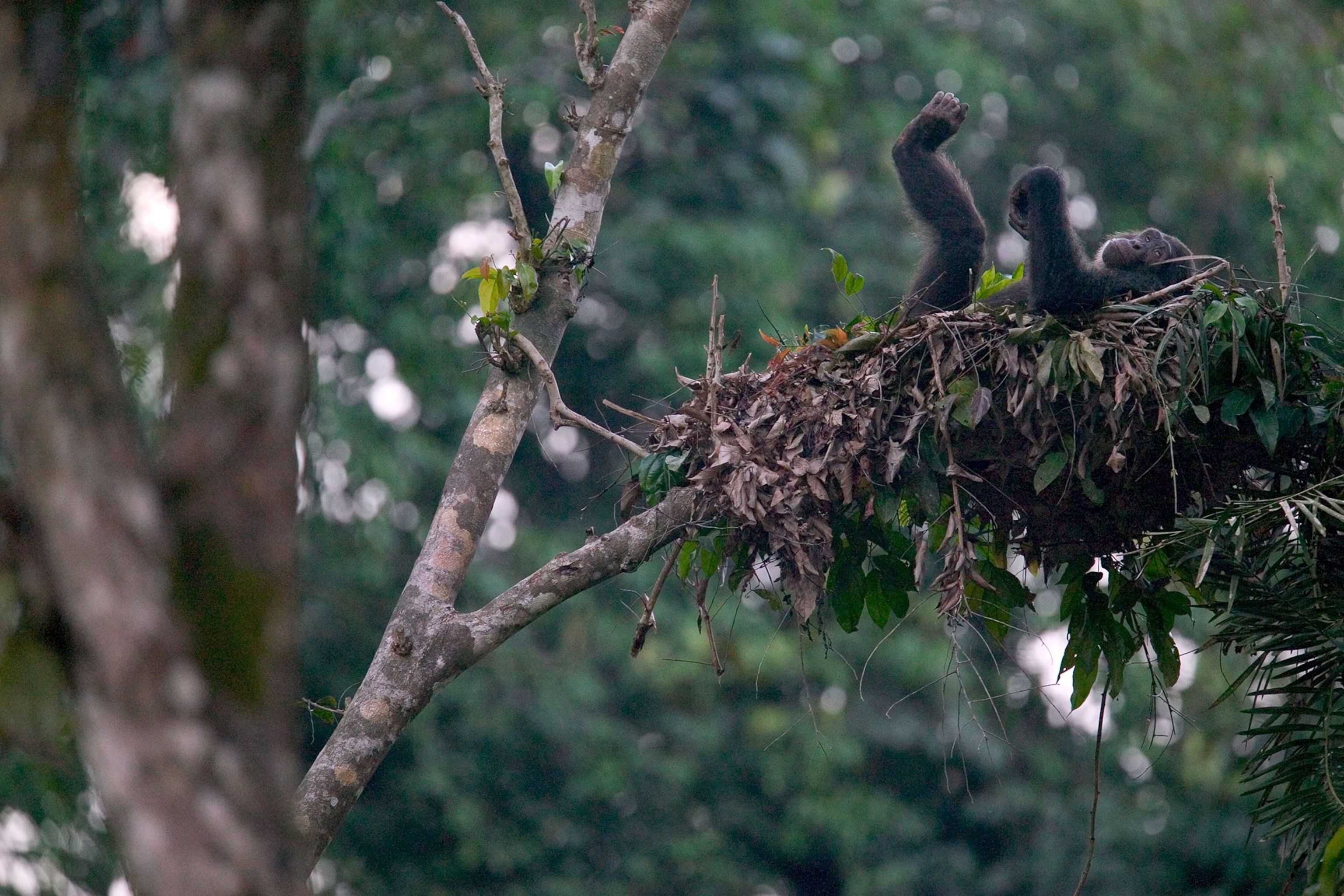
Who Has the 'Cleaner' Bed: Chimps or Humans?
For the first time, scientists have compared microbes in human and chimpanzee sleeping areas. The findings may surprise you.
“Take your stinking paws off me, you damn, dirty ape!”
Charlton Heston's line in the 1968 classic Planet of the Apes epitomizes the way most of us view our closest mammalian relatives.
Stinking. Dirty.
But a new study published today in the journal Royal Society Open Science may lead us to question that reputation.
By swabbing abandoned chimpanzee nests in Tanzania's Issa Valley, scientists learned that just 3.5 percent of the bacteria species present came from the chimps’ own skin, saliva, or feces. In human beds sampled in a previous study in North Carolina, the number was a whopping 35 percent.
Parasites, such as ticks and fleas, were also scarce in chimp beds.
“We need to rethink what we think of as ‘clean’ within our environment,” says study leader Megan Thoemmes, a Ph.D. student at North Carolina State University. (Read: "Chimps Can't Cook, But Maybe They'd Like To.")
Welcome to the Jungle
Now, before you burn your linens and start building a bed out of leaves, there are a few things you need to know.
For starters, chimpanzees construct a new nest each night, and they also take pains to lean over the side of their nests when defecating. (Read how chimps make beds to be as comfortable as possible.)
So it makes at least a little sense that their sleeping spots would have lower concentrations of body-associated bacteria than the sheets we Americans spend a third of our lives in.
However, even the scientists were surprised by the study’s findings.
“We expected to see a lot of ectoparasites and a lot of fecal bacteria, because there’s been a lot of evidence showing that fecal bacteria builds up in the fur of chimpanzees,” says Thoemmes.
It’s important to note that the study only looked at the kinds of bacteria present, not the overall quantity of microbes, says Jonathan Eisen, an evolutionary microbiologist at the University of California, Davis, who was not part of the research.
“I guess it depends on how you define it, but to me, ‘dirtier’ means ‘more stuff,'” says Eisen.
Furthermore, "it’s gross and everything, but sitting in your own microbes is not generally the problem for health,” says Eisen: "It’s getting exposed to someone else’s microbes after they’ve gone through that individual.”
“So, health-wise, the grossest part would be sleeping in beds that lots of other people have slept in.”
Healthy Bacteria
For nearly a decade, Eisen has been working on a project called microBEnet, or the Microbiology of the Built Environment program, an attempt to better understand how the transition from living outside to inside has affected humans and our interactions with the microbes around us.
For instance, other studies have found links between the development of autoimmune disorders and allergies in humans with a decline in exposure to soil bacteria, says study leader Thoemmes. (Read why men's offices have more bacteria.)
"Losing those associations has negative consequences to our health and well-being,” she says.
Earlier studies have sampled bacteria from human-built environments where animals live, such as cat shelters, aquaria, and zoos. But until now, no one has ever compared an environment built by a human—our beds—with an environment built by a wild animal—the chimpanzee nests.
While the new study doesn’t provide all the data he would like, such as swabs of the chimpanzees that actually used the nests, Eisen called the work “incredibly novel.”
“They are trying to de-convolute what we see in the human built environment,” he says.
“It’s so cool.”
